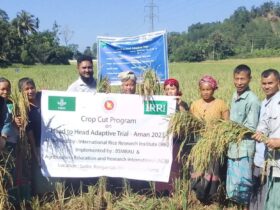What are the agribusiness development policies?
A strong policy initiative is required to turn the agricultural sector from a comparative advantage base to a competitive advantage base, which is much more to rely on than the creation of enterprises. It is possible to divide agricultural growth policies into macro-and micro-economic policies.
Macro-economic Policy
In essence, the macro-economic policy seeks to achieve the objective of economic development through the management of domestic and external balances. Support for such an agri-business policy should not take the form of subsidies and security, as it would only promote the growth of the agribusiness sector in the short term while having a long-term negative effect. The ingenuity of the agricultural community is not enhanced by subsidies and security. Some important considerations are discussed below with respect to macro-economic policy.
- Exchange Rate
For the agribusiness market, the overvalued exchange rate policy has proven unfavorable. It has a double negative effect, i.e. it inhibits exports while at the same time promoting imports, which eventually lowers the domestic price of agricultural products.
- Domestic Interest Rate Policy
It is linked to government attempts to raise capital inflows to cover the transaction deficit and to secure a surplus balance of payments. This strategy, because it does not help the growth of agribusiness, should be withdrawn. For agricultural producing countries, an interest rate of less than 10 percent per annum will be acceptable, promoting the growth of agribusiness with higher competitiveness.
- Fiscal Policy and Government Budget
In order to accelerate the transformation phase of the agribusiness sector to a high competitive advantage, it is important to support fiscal and government budget policies, especially for public investment. It is important to increase public investment expenditure, in particular for road and port development, as well as for research and development in the field of agribusiness. Fiscal policy support is required before a break-even point is reached for the elimination of the tax on investment in agribusiness. Furthermore, a policy on R&D expenditure is required, while the cost of improving the standard of manpower should not be derived from taxable income.
- Banking Policy
In order to accelerate the transformation phase of the agribusiness sector to a high competitive advantage, it is important to support fiscal and government budget policies, especially for public investment. It is important to increase public investment expenditure, in particular for road and port development, as well as for research and development in the field of agribusiness. Fiscal policy support is required before a break-even point is reached for the elimination of the tax on investment in agribusiness. Furthermore, a policy on R&D expenditure is required, while the cost of improving the standard of manpower should not be derived from taxable income.
Micro-economic Policy
- Developing Superior Commodities
In order to compete in the international markets, superior goods should be produced as trade liberalization progresses. This means that serious attention needs to be drawn to improving product quality in order to beat the competition. In that context, it is important to develop a quality assurance framework through complete quality management (TQM).
- Increasing Production and Productivity
Rising both production and productivity is one step that can be expected to mitigate the effect of the recent economic crisis on the economy. In order to achieve food self-sufficiency, this will increase exportable product surpluses and decrease dependence on imports.
- Improving Promotion Campaigns
In order to introduce goods overseas through trade fairs, commercial diplomacy, brochures, and directories covering all agricultural commodities, promotional activities are required. In addition, promotions can also help to lift trade restrictions (e.g., tariff and non-tariff barriers) that harm domestic goods in foreign markets and serve as a counter-campaign to discredit commodities.
- Investment Incentives
Government funding is used to create a better environment for the growth of agribusiness. It provides an opportunity for farmers and the private sector.






Leave a Reply